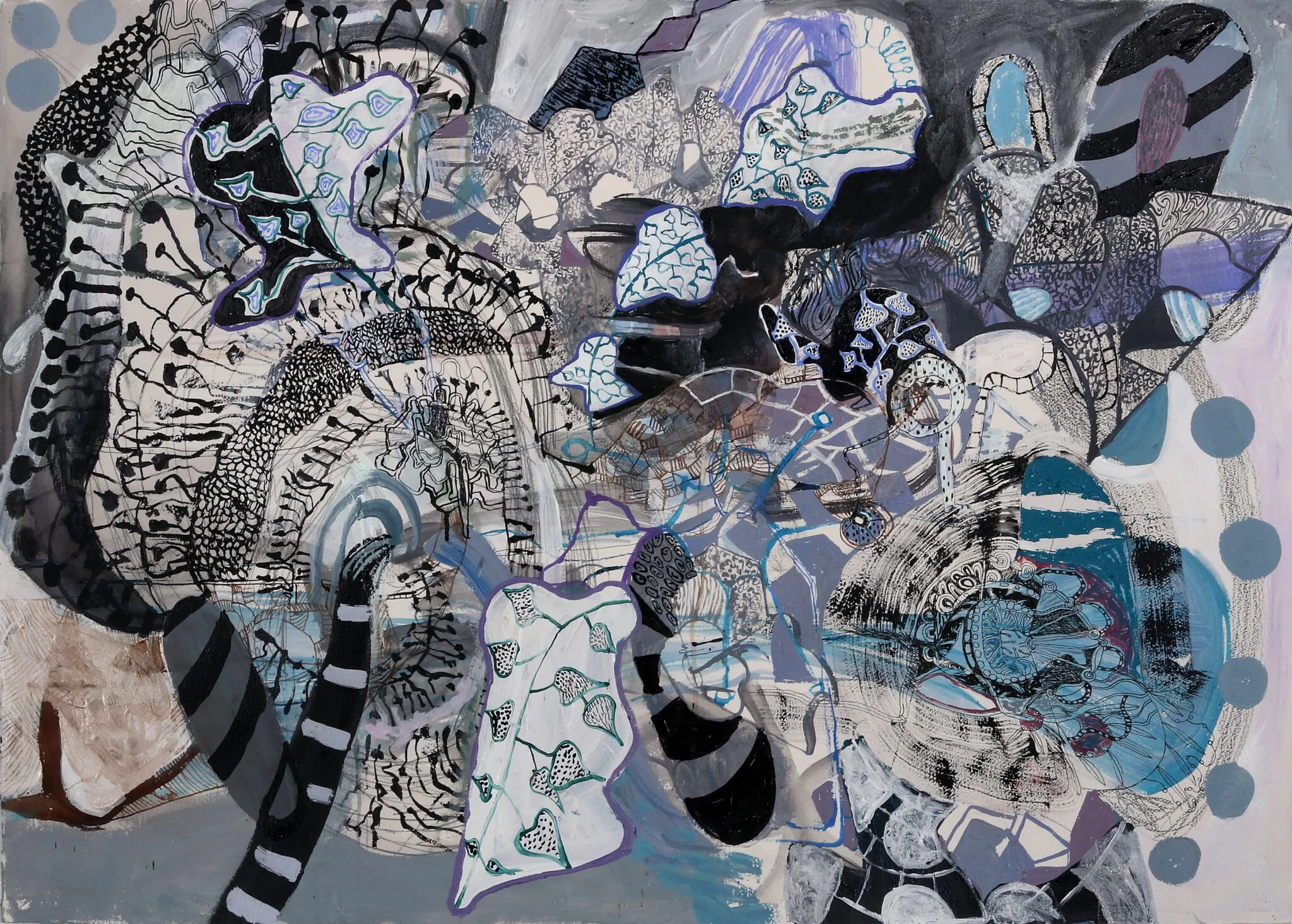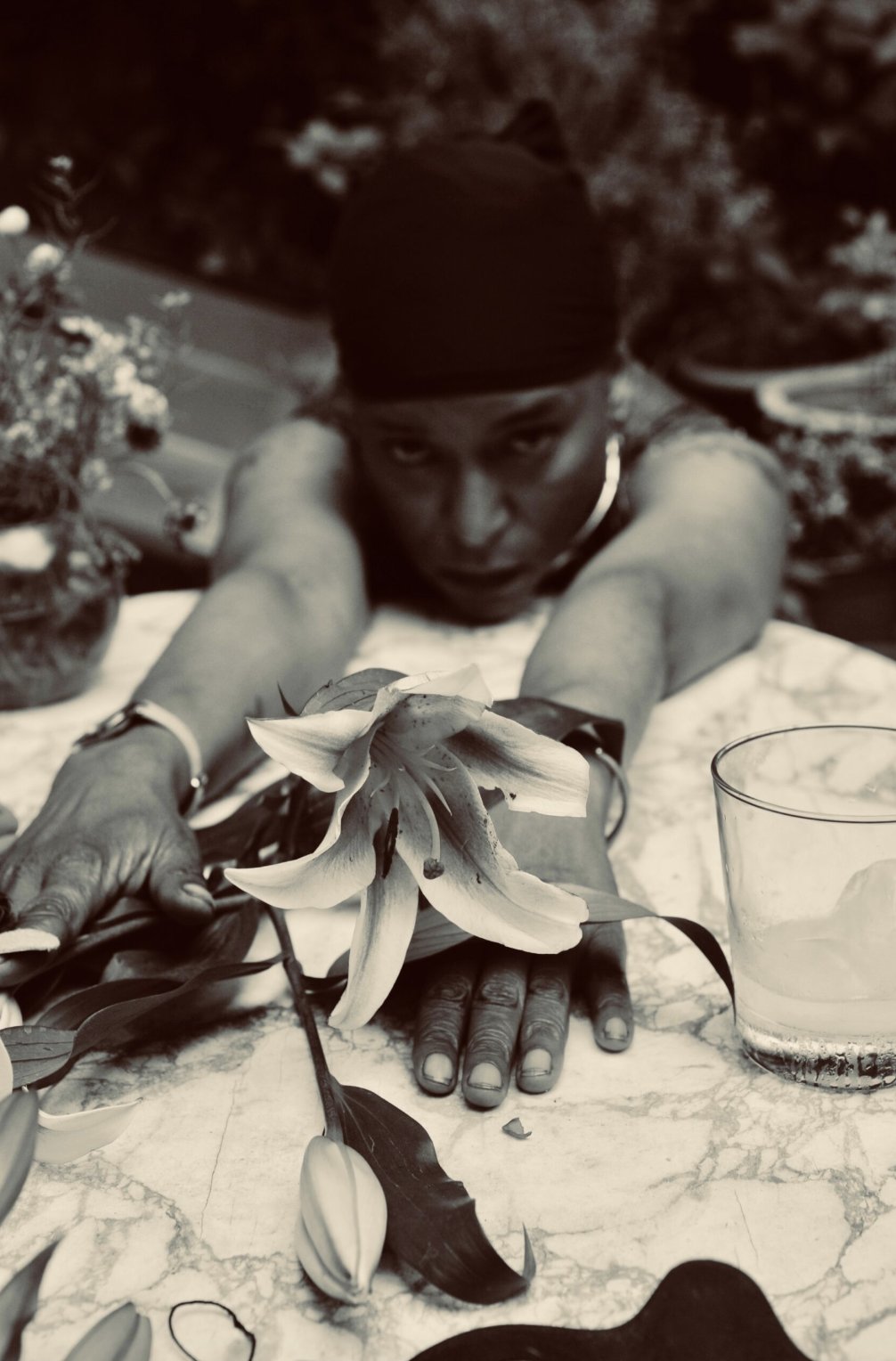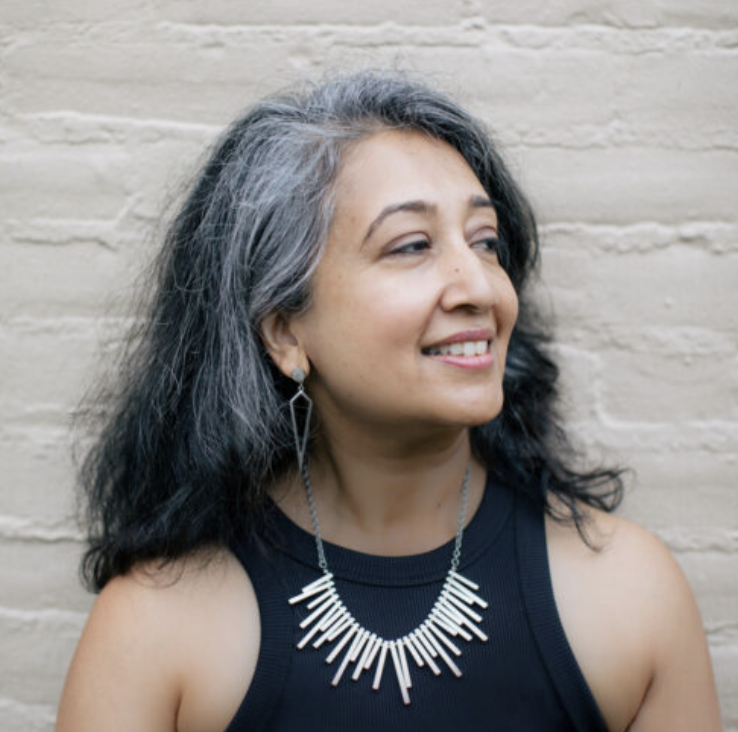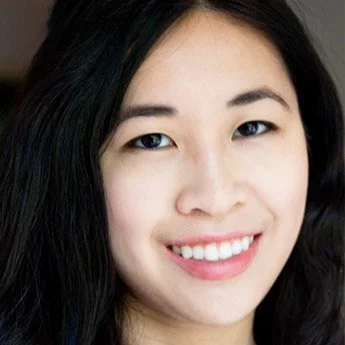Tupelo Quarterly, a literary journal, extends and expands upon the vision of Tupelo Press, publishing work by emerging and established writers and artists of many sensibilities and styles.
Photo credit: Wendy Ide Williams, Instincts of the Heart
Tupelo Press, and its affiliated literary quarterly, are marked by a rich history of championing writers who are underserved within the literary community, with 62% of our list comprised by women, compared to other literary, trade, and academic publishers, whose ratio hovers around 30%. We also take pride in bringing greater visibility to writers of color, LGTBQ writers, and writers from Indigenous communities. In 2019, for instance, Tupelo Press released the first anthology of North American Indigenous writing in over thirty years. Tupelo Press authors have been recognized with three Whiting Awards, the Lannan Literary Fellowship, many Pushcart Prizes, the San Francisco State University Poetry Center Book Award, Norma Farber First Book Award, NEA Literature Fellowships, NEA Translation Fellowships, Guggenheim Fellowships, the PEN/Open Book Award, appointments to the National Society of Arts and Letters, among many other honors. One Tupelo Press author, an immigrant, was currently short-listed for The National Book Award. What’s more, these writers have achieved great visibility and recognition through their affiliation with Tupelo Press.
Photo credit: Diane Samuels
Tupelo Quarterly was created to leverage off of the burgeoning reliance by readers of all sorts on access to digital media, and to deepen and extend Tupelo Press’s visionary brand and mission. Our staff is comprised of nearly forty editors, who were appointed precisely because they embody artistic excellence across a full range of race, class, gender, ethnic, aesthetic, and educational backgrounds.
Photo credit: Anahita Mosayebi
-
All submissions must come through Subfolio. We do not accept any hardcopy submissions. All our open calls are listed there with specific details relevant to each opportunity. Please read the guidelines for each category carefully. If no categories appear, that means the reading period is closed. Simultaneous submissions are welcome as long as you notify us immediately at contactTQ@tupelopress.org if the work is placed elsewhere. Submissions may not be changed after entry. We do not accept previously published material.
-
Tupelo Quarterly endorses and abides by the Ethical Guidelines of the Council of Literary Magazines and Presses (CLMP), which can be reviewed here.
-
Subfolio sends automated confirmations of receipt, and we will use Subfolio to accept or decline all work. Beyond these notifications, kindly refrain from requesting an individual response to confirm receipt of your submission, contest entry fee payment, or status in a contest. Our turnaround for submissions is approximately three months for any given issue of the journal.
-
If Tupelo Quarterly publishes your work, we ask for 1st serial rights and acknowledgement if the work later appears elsewhere. We also ask to retain the option to include the work in a print anthology, The Best of Tupelo Quarterly, if the editors select it for the book. Authors/artists retain copyright.
Our Mission
Since its inception in 2011, Tupelo Quarterly has demonstrated an extraordinary commitment to innovative work that questions the boundaries of genres and mediums, publishing new hybrid texts by Rachel Eliza Griffiths, Kate Greenstreet, Rachel Blau DuPlessis, Kristy Bowen, Nick Flynn, and other notable multimedia practitioners alongside that of emerging artists. In many ways, championing work in innovative, cross-disciplinary forms is essential to publishing writers—particularly those from historically underserved communities—who challenge the status quo. After all, a groundbreaking message often requires new forms of discourse.
With that in mind, much of the groundbreaking work published in TQ attempts to expand what is possible within received forms of writing. For innumerable writers, the questions of genre and medium are inherently questions of power. These beliefs about what texts are legible, what texts are considered legitimate, reflect larger structures of authority in the literary community and in the academy. Poet and critic Sarah Vap writes, “I am extremely interested in what is often called hybrid or conceptual within the outstandingly elastic abilities of poetry—these efforts that pose a challenge to the . . . categories of writing (scholarship, journalism, coding, etc.), asking them to also expand their abilities and considerations and concerns and ways. To democratize.” What Vap is suggesting is that dismantling the categories of writing is a larger ontological and meta- physical challenge to the social order—it calls into question the values and hierarchies that we impose upon language. So when she’s saying that hybridity is a democratization, this is what she means. Hybridity— placing disparate forms and/or types of language in conversation—is a way of challenging rules but also the people and institutions in power who make those rules.
For us as editors, the act of writing—and, importantly, the act of selecting writing or the act of championing another writer’s work—has always been linked to social justice, and relatedly, the politics of language. Grammar, after all, is the very foundation of the social order. Even the most simple sentence contains within it a very particular kind of logic, as it implies hierarchies and a clearly delineated causal chain. By changing or expanding our sense of what is possible in language, one ultimately challenges the rules of society itself.
According to feminist scholar Helene Cixous, most of language privileges a definition of logic—a preconceived idea of what makes sense— that comes from a mostly masculine and mostly Western philosophical tradition. She calls this type of writing, which is inevitably linear and familiar in its structure, “marked writing.” Yet this is the kind of work that many readers tend to value, usually at the expense of texts that experiment, that take risks and break new ground. Cixous rightly calls for alternative ways of inhabiting language, new ways of ordering and structuring our experience of the world around us, and for us as readers to understand and appreciate their value.
Part of this necessary work—the work of fostering social justice through innovation in language—consists of offering the tools needed to engage with innovative texts or unfamiliar forms. With that in mind, the editors of Tupelo Quarterly have been especially thrilled to curate a robust offering of literary criticism, which includes roundtables with leaders in feminist theory and cultural studies, as well as rigorous book reviews and literary criticism. Tupelo Quarterly strives to widen not only the conversations in the arts and letters, but also the critical discourse around that work.
Editor’s Note
Each Tupelo Quarterly issue documents the conversations that occur within this vibrant and diverse community of editors, and extends well beyond its boundaries. This dialogic impulse is visible in each issue’s structure, as our editors are invited to solicit and present, with a critical introduction, work that is important to them, whether as a reader, scholar, or practitioner. Similarly, our issues present “Editorial Features,” which include interviews, essays, and hybrid prose by our editorial team, alongside the creative work that they accept and feature, offering a glimpse of the curatorial hand shaping the magazine. We are also heartened and thrilled to provide a powerful platform that enables dialogue across disciplinary boundaries, and have devoted a section of the magazine to “Collaborative and Cross-Disciplinary Projects,” featuring video, sound poems, text and image projects, and sculptural poems. In other words, we are extending the boundaries for what the written and visual arts can accomplish in the age of digital media. This collaborative and cross-disciplinary section aims to showcase the full range of forms that this exchange between the literary arts and the fine arts can take. Thanks to digital media, that exchange itself becomes a new art form. In recent issues of Tupelo Quarterly, our collaborative and cross-disciplinary offerings have included new work by Rachel Eliza Griffiths, Nick Flynn, Rachel Blau DuPlessis, David Dodd Lee, Kate Greenstreet, and more. This impulse toward hybridity, in many ways, supports and deepens Tupelo Press’s existing goal of exploring the possibilities for dialogue between poetry and the fine arts. While Tupelo Press is known for publishing artisan quality paper editions, Tupelo Quarterly investigates, argues for, and succeeds in offering a wealth of other, emerging possibilities for bridging poetry and the fine arts in a digital landscape.
RECENT ISSUE
SPOTLIGHT: TQ36
Photo credit: Jenny Grassl
Meet the EditorS
Kristina Marie Darling is the author of over thirty books, which include recent releases from Bloomsbury, Dzanc, Persea, and Penguin Canada. A twice-awarded Fulbright Scholar, Dr. Darling’s work has also been recognized with multiple endowed residences at Yaddo, a Villa Lena Foundation Fellowship, fourteen juried residencies at the American Academy in Rome, where she previously served as an ambassador for recruitment, and a nomination for the Distinguished Visitor Fellowship at the American Academy in Berlin. A prolific educator and public speaker with the Ovation Agency, she has held academic appointments at the American University of Rome, the University of Zadar in Croatia, the Universidade do Porto, the Universidad Complutense de Madrid, the European Law and Governance School, the Amsterdam School for Cultural Analysis, the University of Cambridge, the American Research Center in Sofia, the Leysin American School in Switzerland, and the Ionion Center for the Arts and Culture, where she is now permanent faculty. Dr. Darling has also lectured at Yale University, Columbia University in the City of New York, the New School, Istanbul University, the University of Bangka Belitung in Indonesia, the University of Cyprus, the San Miguel Writers Conference & Literary Festival, the Leopardi Writers Conference in Recanati Italy, the United States Embassy in Togo, and many other distinguished venues in the U.S. and abroad. She teaches as Visiting Faculty in the Maslow Family Graduate Writing Program at Wilkes University, as well as the low-residency creative writing programs at Maharishi International University and Pocket MFA. Dr. Darling spends her summers teaching in Greece, on the islands of Kefalonia and Andros respectively, and her winters in San Michele on the Amalfi Coast.
Hasanthika Sirisena’s work has been anthologized in This is the Place (Seal Press, 2017), in Every Day People: The Color of Life (Atria Books, 2018), and has been named notable by Best American Short Stories and Best American Essays. Hasanthika is faculty at Vermont College of Fine Arts and Susquehanna University and serves as a prose editor at Tupelo Press.
Their short story collection The Other One won the Juniper Prize and was released in 2016 by the University of Massachusetts Press. Their essay collection Dark Tourist (Mad Creek Books 2021) won the Gournay Prize and was a finalist for the Lambda Literary Award.
Wendy Chen is the author of the novel Their Divine Fires (Algonquin) and the poetry collection Unearthings(Tavern Books). Her poetry translations of Song-dynasty woman writer Li Qingzhao are published in a collection titled The Magpie at Night from Farrar, Straus & Giroux, and forthcoming from Penguin UK. She is the editor-in-chief of Witness, associate editor-in-chief of Tupelo Quarterly, and prose editor of TupeloPress. Chen is the recipient of the Academy of American Poets Most Promising Young Poet Prize and fellowships from MacDowell, The Kimmel Harding Nelson Center, and elsewhere. Her poetry, translations, and prose have appeared in Freeman’s, A Public Space, Lit Hub and elsewhere. Her work has been translated into multiple languages and adapted into musical compositions. She has taught and spoken at colleges, universities, and arts organizations including the Academy of American Poets, Poets & Writers, New York University, Yale University, Wellesley College, and the Lighthouse Writers Workshop. She earned her MFA in poetry from Syracuse University and her PhD in English from the University of Denver. Currently, she is an assistant professor of creative writing at the University of Nevada, Las Vegas.








